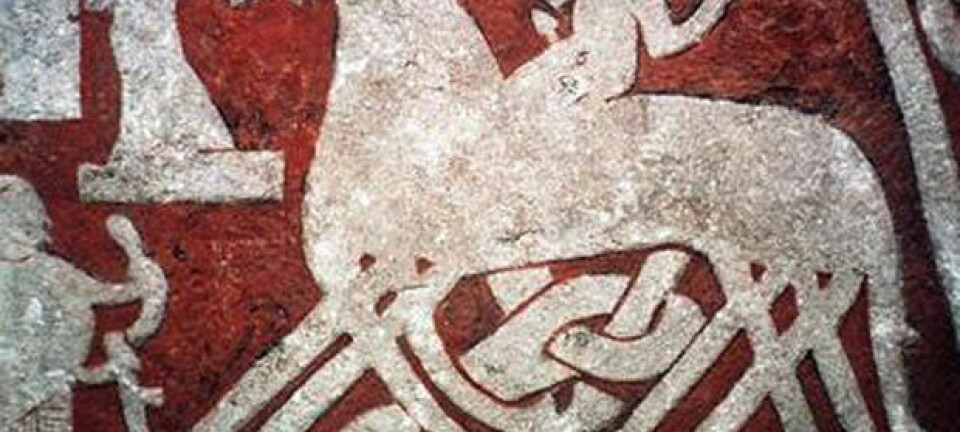
Believing in a watchful God makes you more “moralistic”
The type of God you follow can determine how you behave towards other people, shows new research.
New research suggests that a belief in a god that punishes bad behaviour makes religious people behave in a more ‘moralistic’ way.
"People's views on their gods have a direct impact on the way they behave towards other people," says co-author Dimitris Xygalatas, associate professor at Aarhus University, Denmark.
"More precisely, we can see that those who think of their god as moralistic, punitive, and knowledgeable, tend to behave more fairly towards others, even if they’re not a family member,” he says.
The study is published in the renowned scientific journal Nature.
Christianity and Islam have moralising gods
The so-called ‘moralising deities’ of Christianity, Islam and Judaism, are perceived as powerful and all-knowing. According to their followers, they reward moral behaviour and punish those who do not follow the rules.
But many other gods of smaller religious communities are not so focussed on morality.
"Spirits, demons, ancestors, and ghosts tend to be more concerned with receiving offerings and rituals, than they are about whether people eat pork or have sex before marriage," says Xygalatas.
If you are religious, then the type of god you worship determines how you behave towards your fellow human beings, says Xygalatas.
"Previous research has shown that religion has no influence on moral behaviour. In this study, we looked closely at religion to ask 'when looking at all types of religiosity--which is most important in for our moral behaviour?’ It turns out that it's not about whether you believe in a god, but what kind of god people believe in," says Xygalatas.
Where in the world, are people “most” moral?
Xygalatas and colleagues interviewed 591 people from eight different local communities around the world--from Brazil to Tanzania. All participants followed a religion of some kind, including Christianity, Hinduism, Buddhism, and beliefs in ancestors or magic.
The researchers interviewed the participants and observed them while they played an economic game designed to show how they behave towards other people.
During the game, the participants could share a significant amount of money between themselves or strangers of the same religion. But there were also many opportunities for the participants to cheat.
Psychological research shows that if you want to know how moral a person is, you cannot just ask them. All to often we want to see ourselves in a positive light, irrespective of how we really behave, says Xygalatas
“We can’t see ourselves objectively. But we can see their real behaviour using this money game," he says.
Participants, who came from a society with a moralistic and punitive God, cheated less often than followers of other gods.
The researchers concluded that the belief in a punishing God makes religious people more honest and more social with other people, and not just with the people closest to them.
Punitive gods may have led to developed societies
The findings go beyond understanding how the type of god influences an individual’s behaviour. It also casts new light over the theory of ‘Big Gods.’
"To be honest, my first reaction to the results was 'wow, they were right!'” says Xygalatas, referring to colleagues from the University of British Columbia, Canada, who have made similar predictions before.
The ‘Big Gods’ theory says that a belief in a moralistic and punitive god made it possible for early humans to develop complex communities, because they regulated human behaviour, morality, and interpersonal skills.
Supports a controversial theory
Whilst it does not prove the ‘Big Gods’ theory, the new results do seem to point in that direction, according to Xygalatas.
"Evolutionary questions about beliefs and behaviour can never be answered definitively. We can only improve our guess. Our results support the theory's claim about the role that gods can play in [the development of] human society," he says.
Postdoctoral Uffe Schjødt, studies the psychology of religion at the University of Aarhus, Denmark. He was not involved in the new study, but has also noticed that it draws on the ‘Big Gods’ theory.
"The theory of a punitive god as a tool to make people more social is a popular theory that has been made by several of the authors before. But much of the underlying science is currently under increasing criticism from other researchers, who have tried to replicate their results without success," says Schjødt.
But, he emphasises, this does not necessarily mean that the theory is wrong.
"Although the theory is controversial, this study can be seen as a new and interesting form of scientific support [for it]," says Schjødt.
--------------
Read the Danish version of this story on Videnskab.dk
Translated by: Catherine Jex









